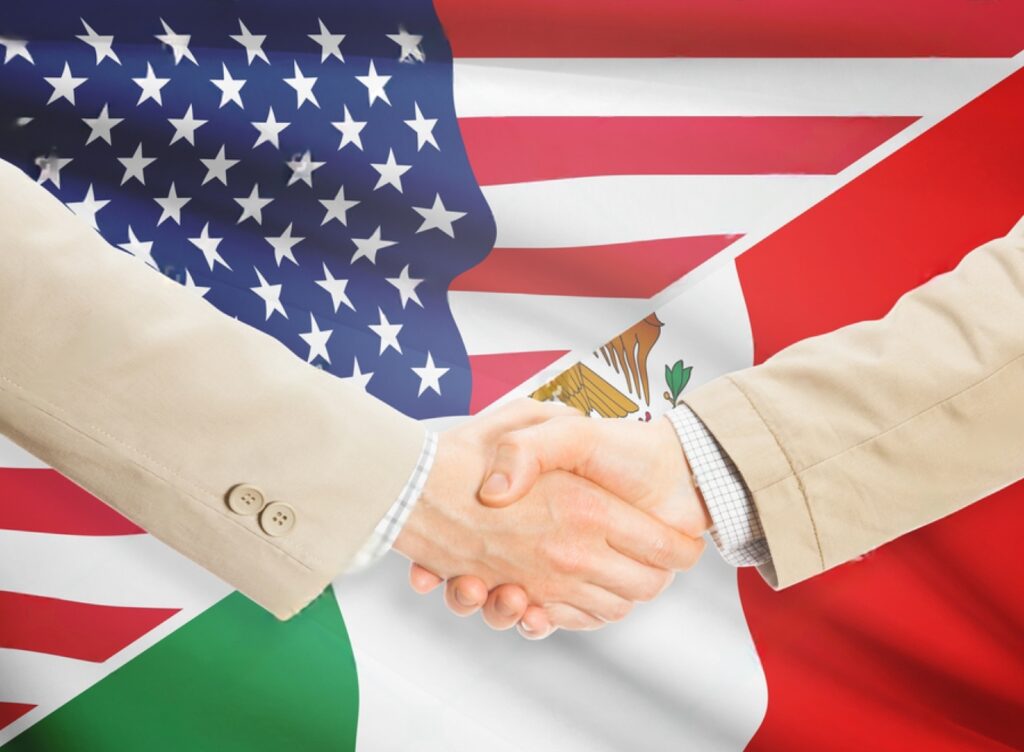At a time when global trade is being reshaped by sweeping tariffs and shifting alliances, the relationship between the United States and Mexico is proving to be a powerful example of cooperation that works. While many nations face steep new import duties under President Trump’s latest tariff strategy, Mexico has been strategically exempted—reflecting its active role in fostering regional stability.
This exemption, combined with historic improvements in border security, is a clear sign that mutual respect, collaboration, and wise diplomacy are delivering real benefits for both nations.
Border Crossings at 25-Year Low: A Shared Security Victory
In a remarkable turn, illegal border crossings into the U.S. plummeted to just 7,000 in March 2025, a 94% drop from last year. This marks the lowest level in over two decades.
Homeland Security officials credit the shift to stricter enforcement on both sides of the border. Most importantly, they emphasize the role of Mexico’s cooperation in curbing unauthorized migration, strengthening its southern border, and maintaining open communication with U.S. agencies.
Mexico’s commitment to regional stability is helping to create a safer North America—without the need for conflict or retaliation.
Why Mexico Was Spared While Others Weren’t
On April 2, President Trump imposed aggressive new tariffs on major trading partners:
China: up to 54%
European Union: 20%
Vietnam: 46%
India and Japan: 27% and 24%
Mexico and Canada were the only significant economies exempted—thanks to their compliance with the United States-Mexico-Canada Agreement (USMCA) and their commitment to regional cooperation.
For companies exploring business expansion into Mexico or relocation to Mexico, this exemption reinforces Mexico’s reputation as a stable, investment-friendly destination with privileged access to the U.S. market.
Economic Integration and Strategic Growth
With over $945 billion in bilateral trade in 2024, Mexico is now the United States’ top trading partner. Our countries’ supply chains are deeply integrated in areas ranging from agriculture and automotive to energy and electronics.
This is especially important for:
Entrepreneurs seeking Mexican business consulting services
Families and retirees pursuing travel and relocation to Mexico
Individuals needing Mexican dual citizenship assistance
Companies navigating Mexican immigration laws for cross-border operations
Mexico’s role as a cooperative, predictable partner helps anchor these sectors—and protects millions of jobs on both sides of the border.
Mexico’s Smart Strategy: Cooperation Over Retaliation
Mexico has chosen collaboration over confrontation, unlike other nations that have responded to U.S. tariffs with retaliation. President Claudia Sheinbaum emphasized that the exemption resulted from “a good relationship based on respect, cooperation, and coordination.”
Rather than escalating trade tensions, Mexico is:
Focusing on economic resilience
Enhancing internal security and migration controls
Prioritizing long-term trade and diplomatic relationships
This diplomatic approach has helped Mexico avoid the costly consequences other countries face while reinforcing its leadership as a responsible regional power.
Building a Bigger, Safer, and Stronger North America
As global uncertainty rises, the partnership between the U.S. and Mexico is producing results:
Record-low illegal border crossings
Continued tariff exemptions
Deepened trade under USMCA
Shared responsibility for regional security
Krear Consultancy. Empowering Cross-Border Success through Trust, Expertise, and Binational Cooperation.


